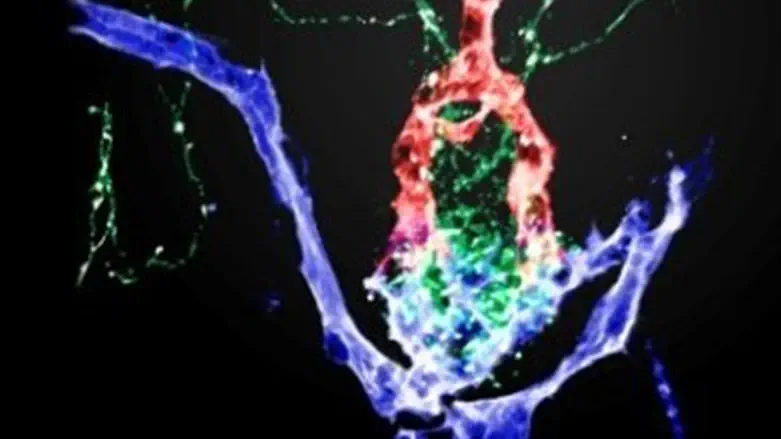
Scientists at the Weizmann Institute say they have discovered a surprising new role for the “hormone of love.”
In a study published in Developmental Cell, a team of scientists led by Dr. Gil Levkowitz has revealed the exact structure of a crucial brain area in which biochemical commands are passed from the brain cells to the blood stream – and from there to the body.
In the process, researchers discovered a new role for oxytocin, showing that it helps direct the development of a brain structure called the neuro-hypophysis, an interface between nerve fibers and blood vessels located at the base of the brain. This is the place where some of the major mind-body interactions occur.
Hormones that are released from nerves into the blood vessels regulate a series of vital body processes, including the balance of fluids and uterine contractions in childbirth.
The Weizmann Institute scientists showed that oxytocin, one of the two major hormones secreted in the adult neuro-hypophysis, governs the formation of new blood vessels in the embryonic brain.
Oxytocin is dubbed the “hormone of love” because, in addition to controlling appetite and female reproductive behaviors such as nursing, it is also involved in mother-child and mate bonding.
“The messenger helps to build the road for transmitting its own future messages,” explained Levkowitz.
This structure – the neuro-hypophysis – has been studied for more than a century and has been shown to be one of the few areas of the brain that can regenerate after injury.
The Weizmann Institute research team developed new genetic tools that enabled them to examine the precise 3-dimensional arrangement of this brain structure and clarify the cellular and molecular processes leading to its formation.
An understanding of how this structure is formed may one day help doctors achieve regeneration in other parts of the central nervous system, Levkowitz said. The research was performed on live embryos of Zebra fish, which are fully transparent, since the human structure is very complex, he added.
The study was carried out in collaboration with Monash University in Australia, the University of Basel, Switzerland and the University of Utah, in the United States. The research was supported by the Dekker Foundation, the Kirk Center for Childhood Cancer and Immunological Disorders and the Irwin Green Alzheimer's Research Fund. Levkowitz is the incumbent of the Tauro Career Development Chair in Biomedical Research.